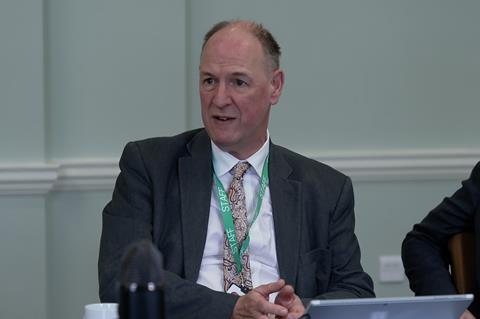The House of Lords will today begin hearing evidence on court interpreting services amid fresh anger within the interpreting community over a new government tender for language services contracts.
The Law Society’s head of justice, Richard Miller, and Bar Council legal services committee chairs Susan Grocott KC and Philip Stott will give evidence to the Lords public services committee on the system of obtaining court interpreting and translation services, key challenges and their impact on court proceedings and access to justice.

As the Lords inquiry gets underway, interpreters were angered to learn that the government will continue to outsource court interpreting services.
The Ministry of Justice is currently tendering for contracts to provide face-to-face, telephone and video interpreting services for spoken languages, British Sign Language, visual and tactile communication, and quality and assurance of all language services.
Read more
The contract for spoken languages is currently held by Leeds-headquarted thebigword, visual and tactile is held by Clarion and quality assurance is held by The Language Shop. The tender does not cover the contract for transcription and translation, which is currently held by thebigword, as that runs on a separate timescale.
The Gazette has learned that the government committed in 2022 to reviewing the model of outsourcing court interpreting services. The National Register of Public Service Interpreters (NRPSI) is calling for an external, independent review of the current model.
The Ministry of Justice told the Gazette that, following an internal assessment, stakeholders were informed in 2023 that the government planned to continue with an outsourced model.
The NRPSI has also questioned why the government is tendering for new contracts to begin in 2026 when a new court interpreting framework is coming into force next October. NRPSI says the new framework is an improvement on the current one, as it raises the bar on the level of qualifications and experience an interpreter will require.
The ministry said the gap between the new framework and the new contracts will allow sufficient time for the tender process, approvals for the contract award and preparation for the mobilisation of the new contracts.
Meanwhile, after withdrawing their services for a week last month over grievances with thebigword’s booking system, interpreters will withdraw their services on 28 and 29 October over pay and the government's decision to continue outsourcing.
Thebigword has previously said it has an open dialogue with people over any issues raised and its contracts are reviewed by employment lawyers who confirm they are appropriate for self-employed freelancers.
This article is now closed for comment.



























1 Reader's comment